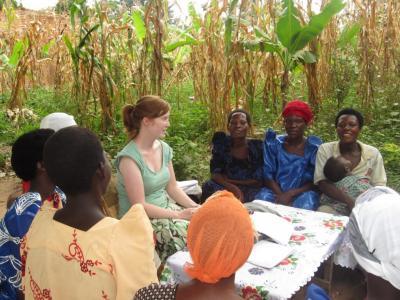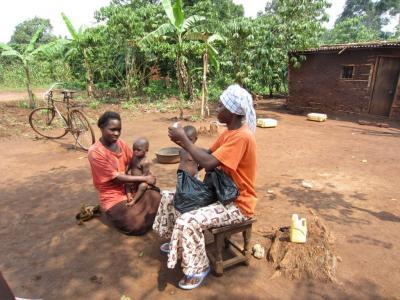TORONTO, ON – Males and females face different challenges in accessing treatment for neglected tropical diseases (NTDs), according to a new study from researchers at the University of Toronto Dalla Lana School of Public Health, Uganda Ministry of Health and Imperial College London. The study, published by PLOS Neglected Tropical Diseases on July 11, explores the role of gender in access to treatment in the Uganda National Neglected Tropical Disease Control Program.
NTDs are a group of parasitic, viral and bacterial diseases that affect at least a billion people worldwide. Predominantly seen in rural and underserved communities in Africa, the Middle East and Southeast Asia, NTDs can pose significant health risks for both male and female populations. International donors have been funding mass-drug distribution programs to treat neglected tropical diseases for over a decade.
"For females, NTDs, such as schistosomiasis and soil transmitted helminths (worms), can cause pregnancy complications," says lead author Heather Rilkoff. "On the other hand, NTDs are thought to be somewhat more prevalent in males because men are more likely to have occupational roles, such as farming and fishing, which increase their exposure to the diseases."
The study suggested that men tend to have more difficulty accessing treatment, which is typically distributed annually house-to-house, as they may spend little or no time at home during the day due to occupational roles such as farming, trading or truck driving, which take place away from the household. Females, on the other hand, tend to be home more often and are more likely to receive treatment.
However, the study also found that women who were pregnant or breastfeeding at the time of the annual distribution, and the community health workers who distributed the medicines, were often unaware of which medicines were safe to take, when it was safe to take them, and where women could find access to the medicines once they were no longer pregnant or lactating. WHO guidelines advise not providing two of the four medicines used in the program to pregnant or breastfeeding women until several months after delivery. In some communities, pregnant women were not given any treatments at all, even though they could still potentially receive treatments for schistosomiasis and helminth infections. This might lead to a large proportion of women who consistently miss treatment every year.

This is a U of T researcher with female study participants in Buyende District, Uganda.
(Photo Credit: Heather Rilkoff, MPH, Dalla Lana School of Public Health)
"This could have implications both for the individual women and the long term impact of the program. In these communities, a woman might spend 50% of her reproductive years pregnant or breastfeeding. Unless women are aware of when they're allowed to take the medicines, and where to access treatment once the annual mass treatment is over, large proportions of women will go untreated year after year," says Rilkoff.
Mass-treatment programs, which train community members to distribute medicines within their communities, have been identified as an effective strategy to treat affected populations. However, limited evidence is available to discuss challenges to treatment access, adherence, delivery and monitoring at the community level.
"While there were often similarities across communities involved in the study in terms of gender-based challenges to accessing treatment, there were differences as well. Ensuring that there is health education and effective training of community health workers in each community will definitely help, but the nuances we see between communities also suggests that each community should be supported to create their own solutions to these issues."
The study suggests a more comprehensive understanding of the nuances and challenges of community-based treatment programmes is needed to address gender-related challenges and ensure future success of the programmes.
"The international community have put in significant efforts to establish these programs. But because the programs are community-based, there really needs to be more resources devoted to supporting the volunteer health workers who administer the medicines to address the gender-related challenges that they face, and to ensure that they are able to carry out their duties without taking time away from their own livelihoods," says Rilkoff.

This shows community health workers distributing medicines to a woman and her children in Kamuli District, Uganda.
(Photo Credit: Heather Rilkoff, MPH, Dalla Lana School of Public Health)
Source: University of Toronto